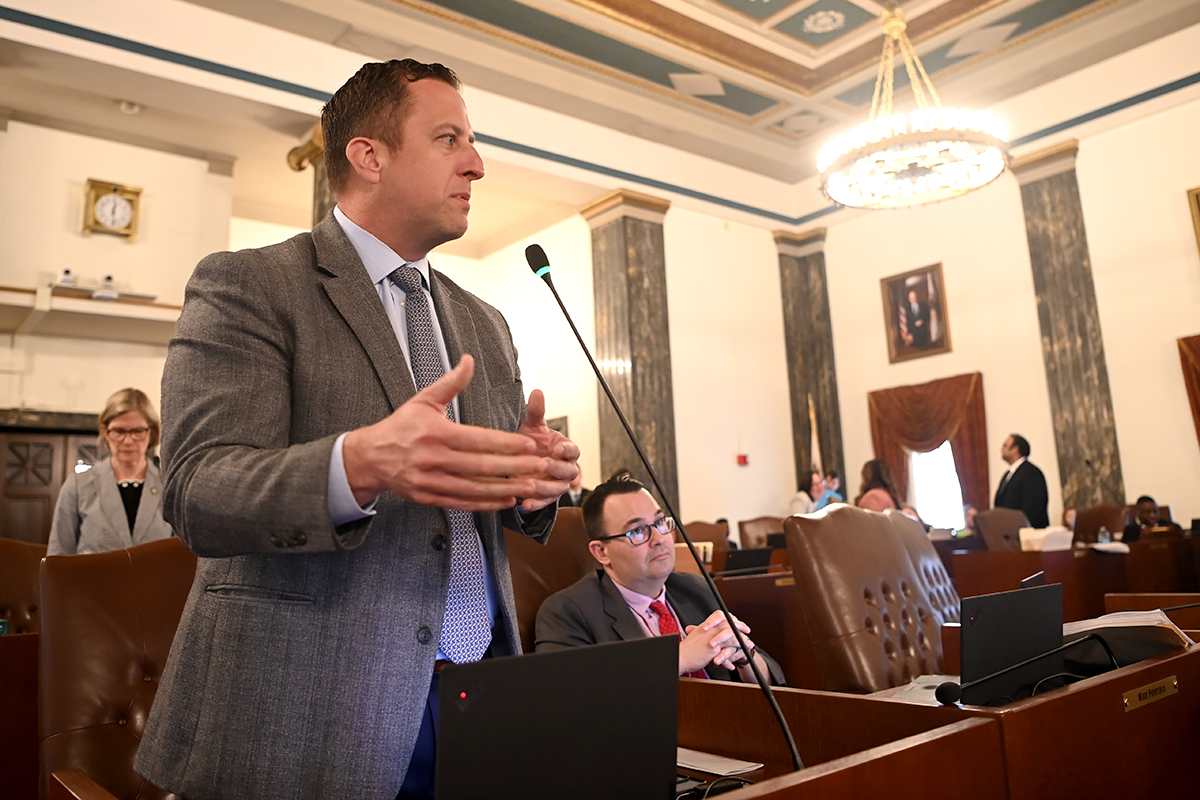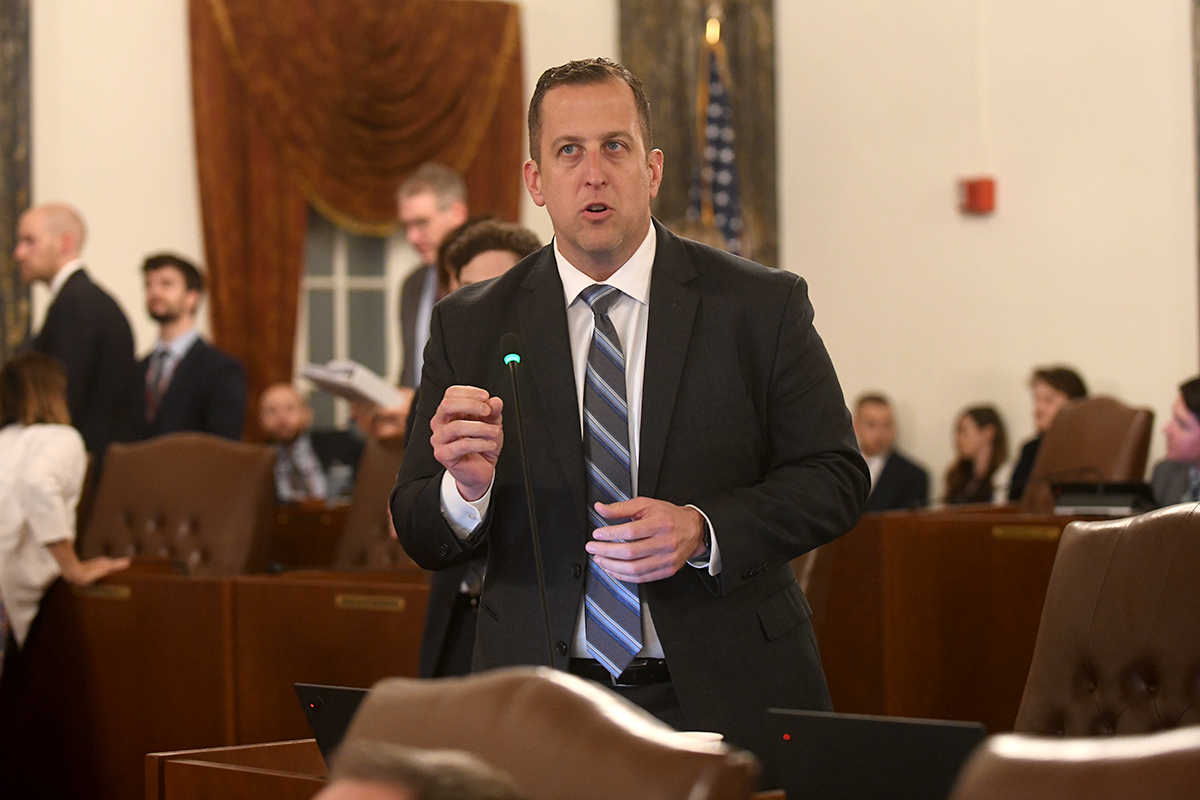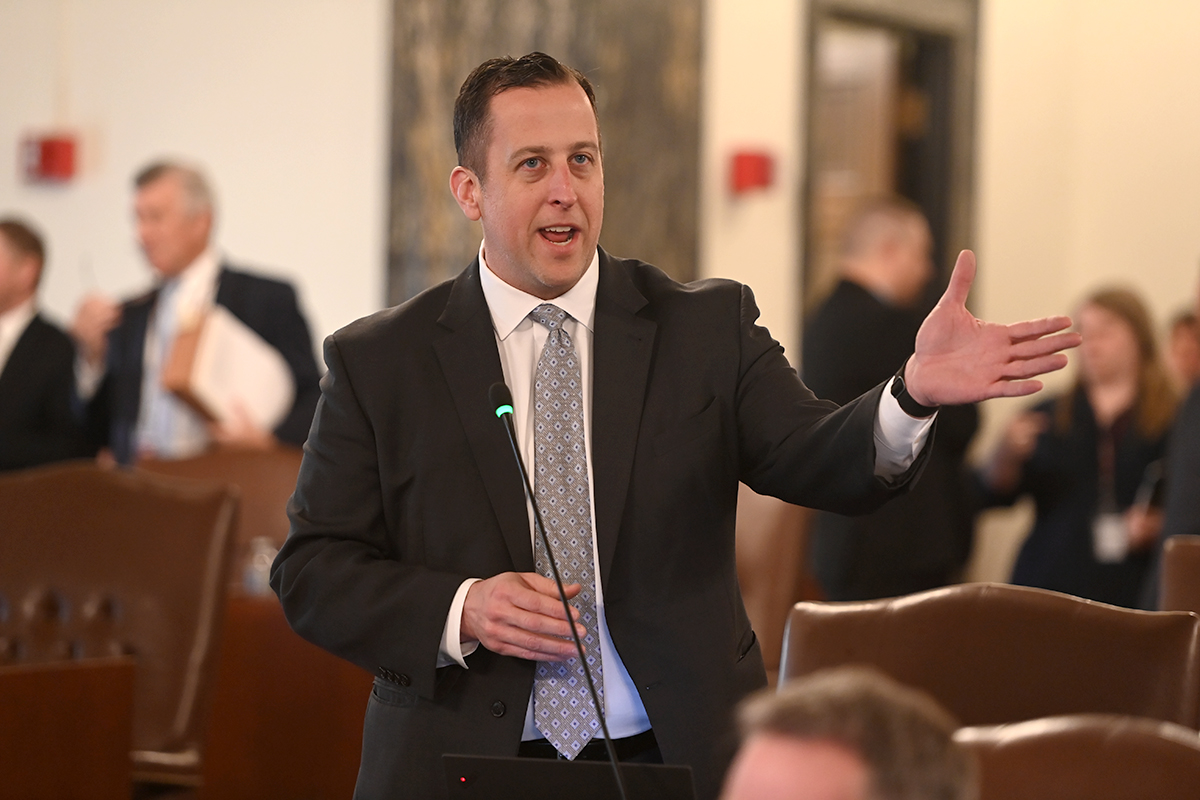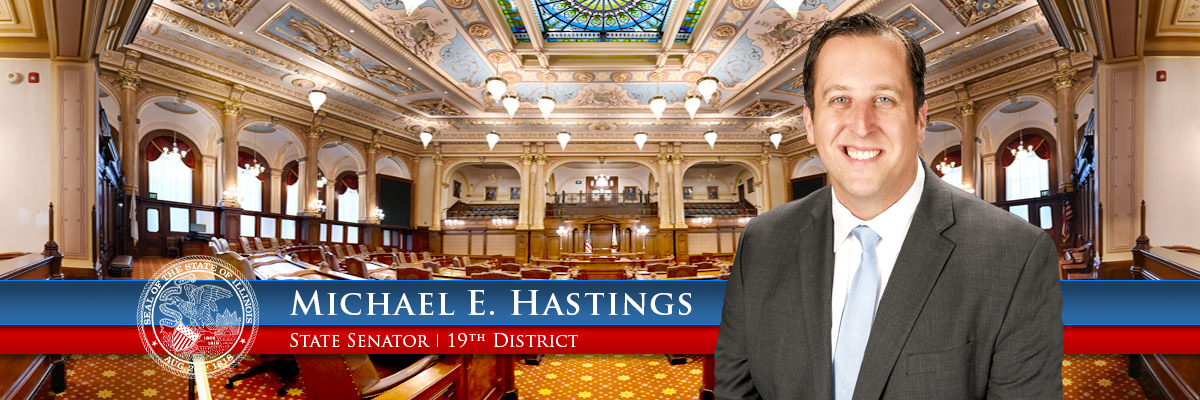Hastings urges local businesses to apply for Blue Collar Jobs Act Construction Tax Credits
- Details
- Category: Press Releases

SPRINGFIELD – State Senator Michael E. Hastings urges local, eligible businesses to apply for the Blue Collar Jobs Act (BCJA) Tax Credit.
The program supports large-scale economic development activities by providing corporate income tax credits to companies that make substantial capital investments in Illinois.
“The Blue Collar Jobs Act Tax Credit will generate new jobs and help expand our region’s economy,” said Hastings (D-Frankfort). “The Southland is a chief cornerstone in our state’s economic growth. This program is another opportunity to boost local businesses in our region and provide them with the support to promote further success.”
BCJA is a bipartisan legislative package designed to promote economic expansion and growth in Illinois by incentivizing construction projects. The initiative makes $20 million in tax credits available per year for eligible companies.
Hastings leads measure to revitalize degraded space in Tinley Park
- Details
- Category: Press Releases

SPRINGFIELD – State Senator Michael E. Hastings spearheaded a measure through the Senate that would allow the Tinley Park – Park District to renovate a degraded building into a sports park and recreational space for residents in the community to utilize.
“Tinley Park is a great place to raise a family, yet all this empty space has been ignored for over a decade,” said Hastings (D-Frankfort). “This has been an eyesore for the community, and something needs to be done about it.”
The former Tinley Park Mental Health Center site located on a 280-acre plot of land has been vacant since 2012. The facility was the last of 12 state-owned properties of its kind when its doors were closed a decade ago. Shuttered without maintenance and nestled in the heart of the village, the state-owned property underwent an environmental study in 2019 that lead to the discovery of numerous environmental concerns, including asbestos infested buildings and black mold, among others.
Senate South Suburban Corridor Members celebrate new airport, bringing jobs and revenue to the area
- Details
- Category: Press Releases
SPRRINGFIELD – The South Suburban Airport may soon be reality, thanks to the Senate members of the South Suburbs.
“This is a touchdown for communities across the South Suburbs,” said State Senator Napoleon Harris (D-Harvey). “This airport will serve as an economic engine for our communities and provide local businesses with access to global markets for generations to come.”
For the last 40 years, lawmakers have attempted to secure a south suburban airport in the Monee community. The measure – spearheaded by Harris – passed on Wednesday, would require the state to establish the process to find partners in the construction of a new south suburban airport.
"We support this project to help create many exciting new opportunities for working families in the South Suburbs for generations to come," said Illinois AFL-CIO Secretary-Treasurer Pat Devaney. "It will jump-start the process leading to the thousands of good-paying union construction jobs to build the airport, and create many long-term career opportunities in the direct airport operations and all of the businesses that will develop around it."
Hastings passes bipartisan measure to crackdown on crime
- Details
- Category: Press Releases

SPRINGFIELD – Working across the aisle and in tandem with law enforcement, State Senator Michael E. Hastings championed a measure to help police and sheriffs quickly track stolen vehicles.
“We have technology at our fingertips to allow us to track carjackers as they travel from Point A to Point B – there’s no reason we shouldn’t be utilizing it,” said Hastings (D-Frankfort). “Law enforcement officers are ready to help. It’s vital we give them the tools to do so.”
Carjackings are on the rise. Yet under current law, law enforcement officers have little to no ability to access real time tracking information.
The all-too-common occurrence led Hastings to pass House Bill 2245, which requires Illinois car manufacturers to establish a 24/7 hotline for police and consumers to utilize in case of a carjacking or kidnapping. This would give police real-time assistance with locating vehicles – allowing them to find the perpetrator and arrest them before they get away.
More Articles …
Page 28 of 59



